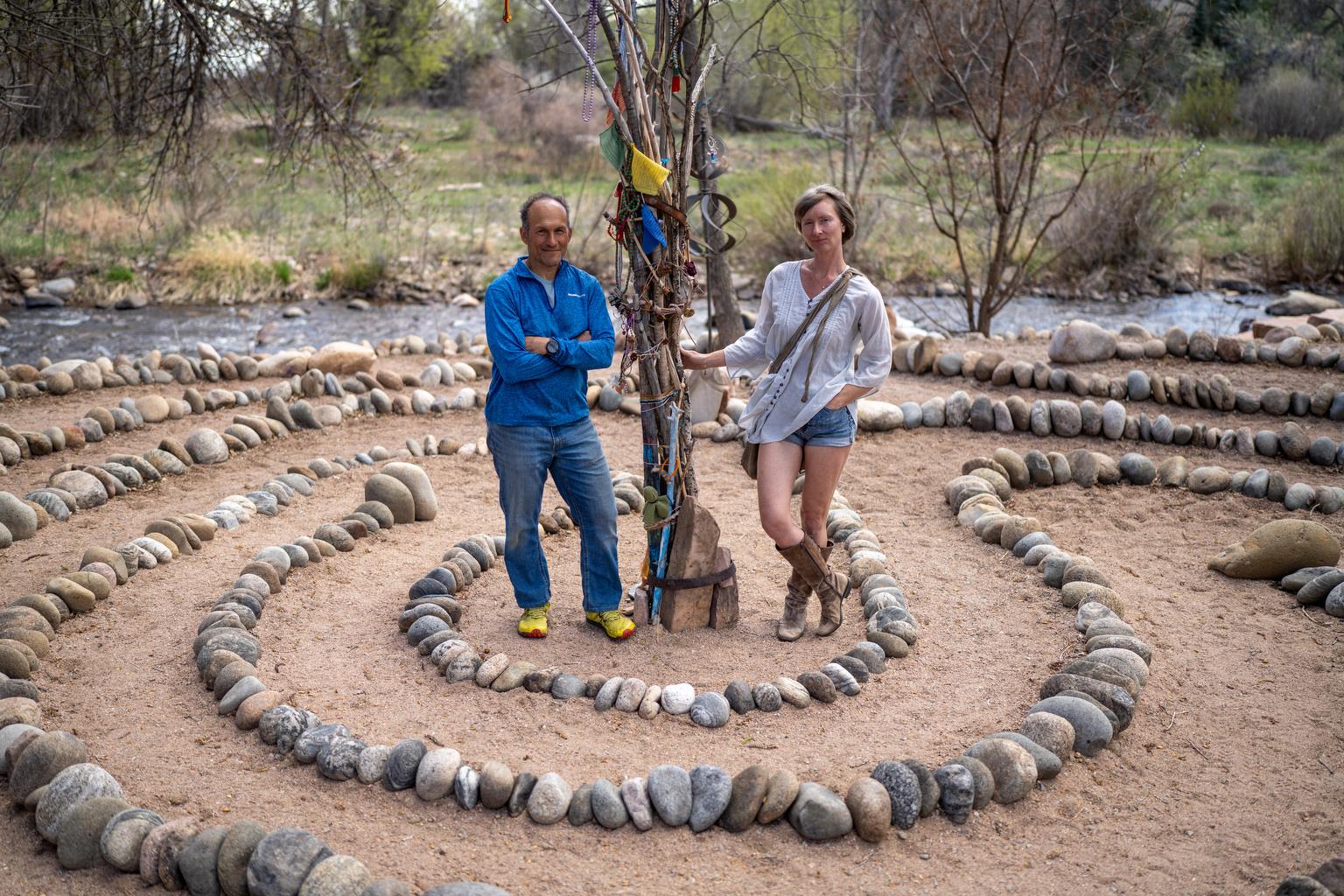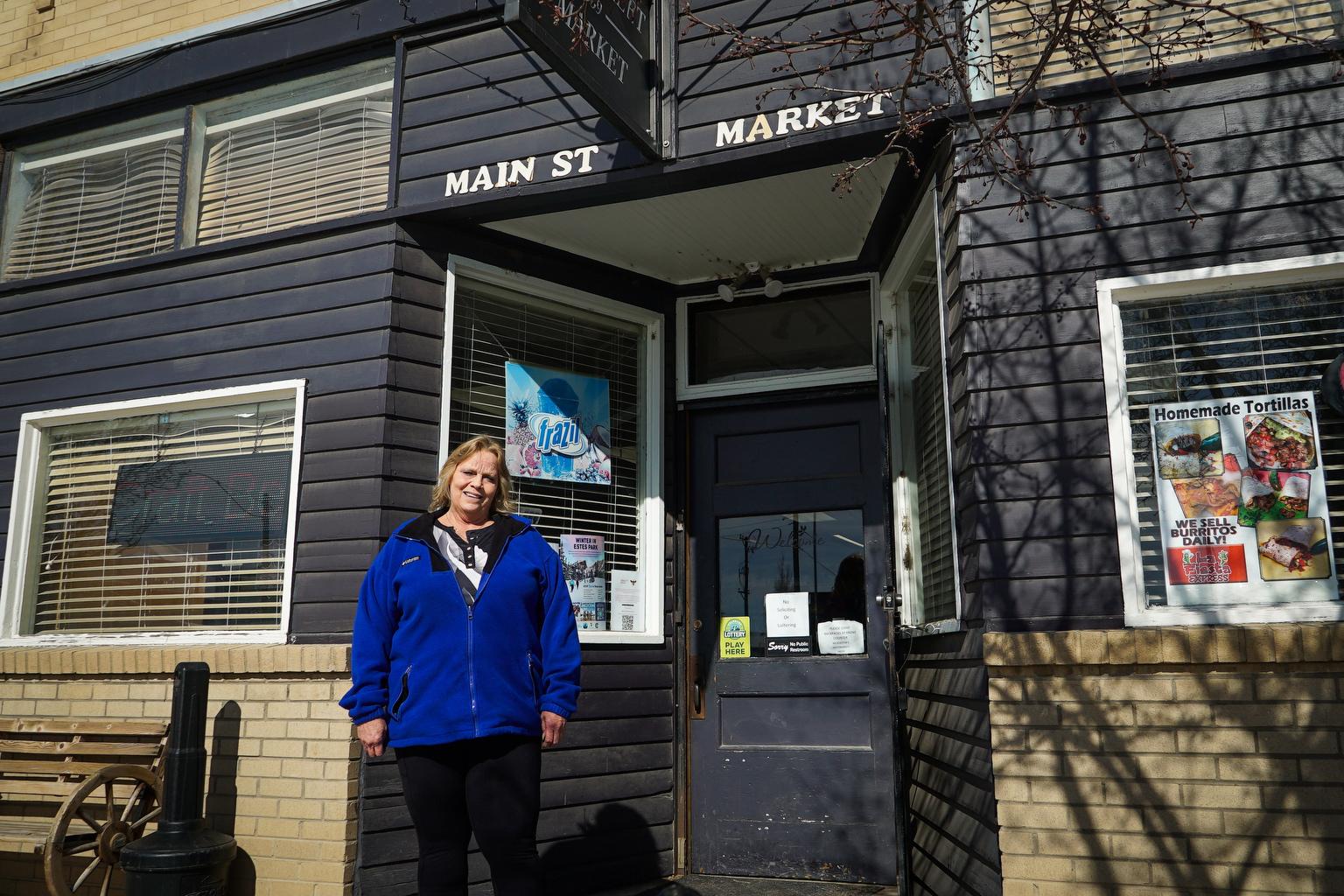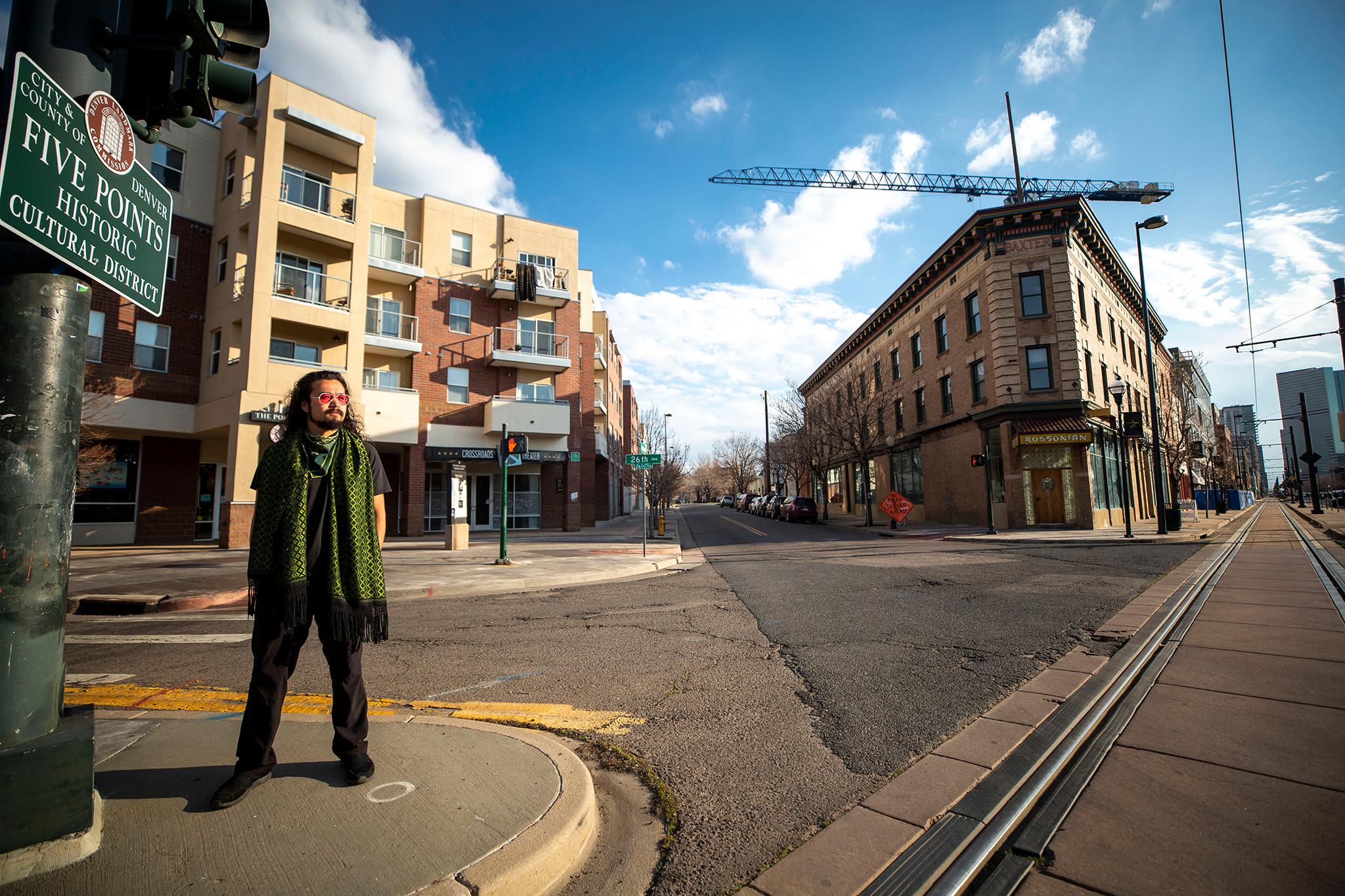
This post collects all of our reporting and updates on the coronavirus in Colorado for the weekend of April 11-12, 2020. You can find Monday's updates here. Our original play-by-play of reporting continues below.
Sunday
5:50 p.m. — Northern Colorado has seen a large number of COVID-19 patients. Respiratory specialists are deploying from Arizona to help
Northern Colorado has seen a large number of COVID-19 patients. Now, some additional respiratory specialists are deploying from Arizona to help. Banner Health says four respiratory therapists will be in Greeley for at least a couple of weeks to help the nonprofit health provider “balance its staffing needs.” The therapists have critical skills to treat patients on ventilators.
The four respiratory therapists arrived as five registered nurses went back to the Phoenix area after a two-week assignment, according to Banner, which has facilities in six states. They were part of a team of 10 registered nurses that arrived in Greeley at the end of March.
The state released new numbers Sunday that show 290 people statewide have now died of COVID-19, the disease caused the virus. That's an increase of 16 since Saturday afternoon, although not all died on that day (state numbers count verified cases often from previous days).
Weld County has recorded 48 deaths to date, the most in any county. And it has the fourth highest number of cases overall, with 738, after Denver, Arapahoe and Jefferson counties.
4:42 p.m. — The virus continues to take a heavy toll on elderly Coloradans who get infected
Less than one percent of Coloradans have been tested for the new coronavirus. The state released new numbers today that show 290 people have now died of COVID-19, the disease caused the virus. That's an increase of 16 since 4 p.m. Saturday, although not all died on that day (state numbers count verified cases often from previous days).
The state numbers detail the heavy toll the disease takes among older Coloradans. More than a quarter of those over 80 identified with the disease have died and equal portion are hospitalized. One in 10 Coloradans in their 70s identified with disease have died. The number of elder care facilities with outbreaks rose by 1, to 68 in total. As of Friday, 81 of the state's deaths had been linked to elder care facilities in the state.
The state has identified 1,417 Coloradans who have been hospitalized, although they do not release figures on the number of people who have recovered and been discharged from hospitals.
State officials expect peak usage of medical equipment, including beds, to occur sometime in May if compliance with social distancing remains strong.
The state has officially recorded 7,303 positive cases, although they estimate many thousands more likely have the disease. Just over 0.6 percent of Coloradans have been tested for COVID-19, which is quite infectious and can spread relatively easily to other people.
— Kate Schimel
3:05 p.m. — Easter Sunday services look a bit different this year
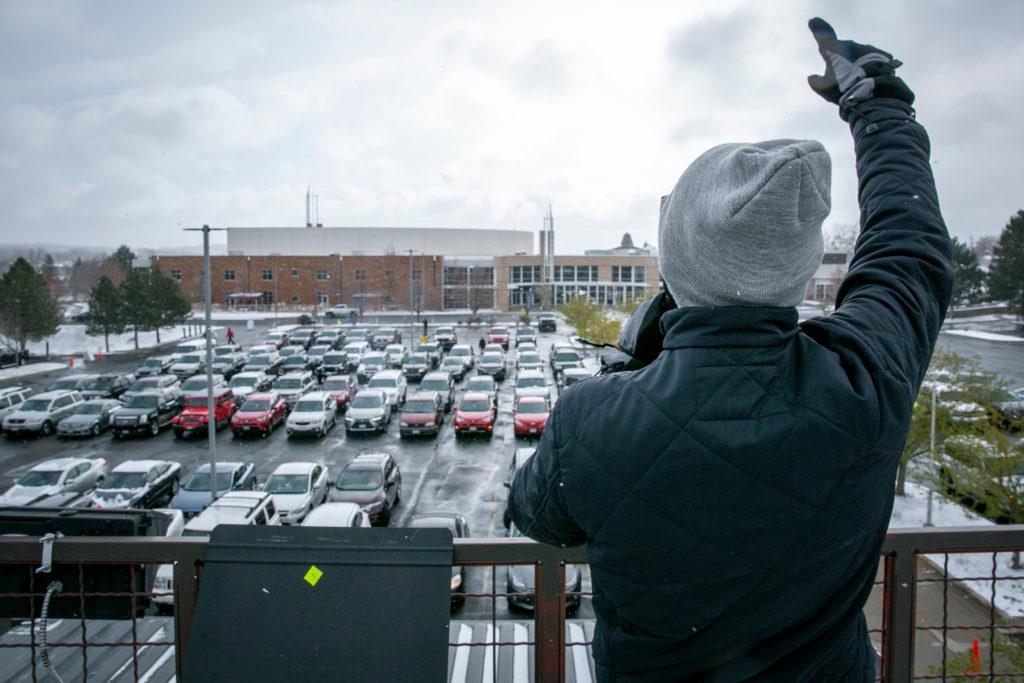
Faith Bible Chapel in Arvada on Sunday morning held a drive-in Easter church service to serve its congregation, while also observing social distance rules.
That's Pastor Nathan Walker, leading a worship song from the roof of a structure in the parking lot.
Here's what the rest of the snowy, Sunday service looked like.
— Hart Van Denburg
2:40 p.m. — People are not doing a great job of social distancing at parks in Jefferson County
Park rangers and sheriff deputies are now enforcing rolling closures of open space parks that are at capacity in Jefferson County.
"We understand that people love to get outdoors, but we want them to protect themselves, and protect others while they're doing so," said Matt Robbins, the community connections manager at Jefferson County Open Space.
Robbins told Denver7 that along with more traffic, and bigger crowds, park rangers are seeing more potentially dangerous behavior, like people congregating in large groups and not maintaining a six-foot distance. '
— Francie Swidler
2:19 p.m. — State implements emergency standards of care for first responders
The state's chief medical officer this week activated emergency medical protocols in response to the novel coronavirus pandemic in Colorado.
The guidelines, approved by Gov. Jared Polis, set out how to make the most urgent medical decisions, as hospitals get overwhelmed, and resources get scarce.
Chief Medical Officer Dr. Eric France activated the protocols, called Crisis Standards of Care for emergency medical services like ambulance transport, and personal protective equipment like masks. The guidelines give frontline providers information about best practices, including for reusing equipment “so that we can provide some liability protection for the healthcare workers who are using the resources in a way they wouldn't typically use," said France.
“We weren’t ever thinking we may come to a day where we’d be reusing PPE in this way. It points out that our supply chain issue is as serious a problem as is the COVID pandemic itself,” said France, a pediatrician. "I'd say over the 31 years of my career, it never occurred to me that I might be in a place where we'd have a shortage of personal protective equipment.
A third set of protocols, for hospital resources like ICU beds and ventilators, have not yet been activated. Ongoing physical distancing policies “have helped delay the strain on hospitals,” the Colorado Department of Public Health and Environment said in a press release. Under the crisis standards for hospitals, a four-tiered scoring system would assign patients points to help predict which had the best chance for survival. It would consider things like how serious a patient's illness is and if they have other chronic conditions that could hamper their survival or return to decent health.
France said the move to activate emergency protocols is "unprecedented" in Colorado.
The recommendations help identify questions ambulance dispatchers should ask and the equipment first responders should wear, as well as clarify which first responders go out when, to minimize “the number of people who could be exposed to COVID-19, while still providing care to people in need,” said France. He said the public can help “preserve precious emergency resources by staying home,” and only contacting 911 when it’s an emergency. “We all play a role in slowing transmission of the virus and protecting the heroes on the frontlines,” he said.
The Governor's Expert Emergency Epidemic Response Committee approved the crisis standards on April 5. Several sub-groups reviewed the protocols, and community feedback and engagement contributed to the process to update the recommendations, according to the health department.
— John Daley
2:10 p.m. — Lawmakers, they're just like us!
Social distancing is a challenge for most people, including members of Congress (the word actually means a formal meeting).
CPR's Washington reporter Caitlyn Kim checks in with the Colorado delegation — and finds that they're learning how to use Zoom, just like everyone else. “We have not figured it out yet,” said Rep. Jason Crow, a Democrat. “We’re not, as a Congress, where we need to be in terms of remote work and technology.”
Read about it here.
— Alison Borden and Caitlyn Kim
11:18 a.m. — Andrea Bocelli: Music For Hope
By invitation of the City and of the Duomo cathedral of Milan, Italian global music icon Andrea Bocelli is giving a solo performance representing a message of love, healing and hope to Italy and the world for Easter Sunday
9:19 a.m. — Pueblo officials looking for ways to boost local businesses
The Pueblo City Council will vote Monday night on whether to approve a plan to help local businesses during the novel coronavirus outbreak.
Mayor Nick Gradisar and other city officials want to take $5 million out of the half-cent sales tax that is meant for job creation and development and give it to local businesses, reports KOAA News 5.
The Pueblo Economic Development Corporation has already approved the plan.
— Alison Borden
7:22 a.m. — It's a chilly Easter Sunday ... better stay inside
It's frosty from Colorado Springs to Fort Collins along the Front Range this Easter morning, with colder temperatures and more snow in the forecast. So it should be easy to comply with the state stay-at-home order, even on a day when many people would be gathering with extended family and attending church services. As the novel coronavirus continues to spread, it's prevented people of faith from gathering in churches and mosques to celebrate their traditional religious holidays. But some faith leaders have offered prayers, sermons and other materials as notes of encouragement at this time.
— Alison Borden
Saturday
4:15 p.m. — Outbreaks continue to plague elder care homes
Another eight elder care facilities across Colorado were added to the list of places serving the elderly with COVID-19 outbreaks, bringing the total to 67.
At least 81 residents of nursing homes and other elder care facilities have died in the coronavirus crisis, and the state on Saturday identified an Aurora home where more than 70 percent of residents have tested positive.
The state defines an outbreak as multiple cases of COVID-19 among staff, residents or a combination.
The state's announced death toll from complications related to the virus grew by 24 between 4 p.m. Friday and today to 274, while the total number of people who have required hospitalization grew by 64 to 1,376.
The state does not currently release figures on the number of people who have recovered and been discharged from hospitals.
Both the number of reported deaths and hospitalizations are in line with published projections, showing that Colorado's stay-at-home efforts are having an impact on reducing the spread of the disease. State officials expect peak usage of medical equipment, including beds, to occur sometime in May if compliance with social distancing remains strong.
The state has officially recorded 6,893 positive cases, though only about one-half of one-percent of Coloradans have been tested for the disease. Officials estimate that as many as 10 times that number may actually be infected.
3:20 p.m. — Polis opens the door to juvenile releases
Gov. Jared Polis on Saturday granted state human services officials the ability to release juvenile offenders who do not pose a threat to public safety.
It is Polis's 32nd executive order related to COVID-19.
It instructs the state Department of Human Services to "assess each juvenile not sentenced as an aggravated juvenile offender or violent juvenile offender for his or her risk to public safety.
"If after that assessment, CDHS determines the juvenile is eligible for release, CDHS will release the juvenile from custody directly to juvenile parole with supervision and services."
The order also suspends some rules to allow CDHS to use seclusion of youths within facilities to reduce the spread of the disease and allows the agency to refuse to accept some juveniles committed to state custody. That could mean that some juveniles remain housed in county jails.
The order also allows visitation to be restricted at the state's mental hospitals and at regional centers operated by the state for people with intellectual and developmental disabilities if an individual or staff member develops symptoms of COVID-19.
As of 5:30 pm Friday, three staff members at facilities run by the Division of Youth Services had tested positive for COVID-19 and four others were awaiting test results. A total of 20 youths in the facilities have been screened after showing symptoms. Of those, eight did not meet the criteria for testing, seven are no longer symptomatic and five tested negative.
— Chuck Murphy
1:40 p.m. — No pickin' this summer in Pagosa Springs

Pagosa Springs in southern Colorado.
Bad news if you were planning on going to the Pagosa Folk 'N Bluegrass Festival this June in Pagosa Springs. It's been canceled, organizer KSUT announced today.
"At this time, we don’t feel as though it’s a responsible decision to move forward with a gathering of this magnitude," Stasia Lanier, Four Corners Music Director, said in a release.
Tommy Emmanuel, Eilien Jewel, Lil Smokies and a dozen other acts were slated to perform during the festival from June 5-7. The Four Corners Folk Festival, set for September 4-6, is still set to go on, Lanier said.
The cancellation comes just days after the popular Telluride Bluegrass Festival was also called off.
— Nathaniel Minor
12:15 p.m. — Aurora nursing home site of large outbreak among staff, residents
Eight people have died and more than 70 percent of the residents of an Aurora nursing home have been confirmed as positive for COVID-19 after tests by a private lab, according to a Saturday release from the Colorado Department of Health and the Environment.
The owners of Juniper Village at Aurora decided to test every resident after the Tri-County Health Department, which serves Aurora, notified CDPHE of several positive tests among workers at the facility. In addition to the residents, 16 of 25 staff members have tested positive, CDPHE reported.
Five of the eight deaths among residents of the memory care facility were confirmed as related to COVID-19. The coroner classifies the other three as "probable" cases of COVID-19.
"The department is doing everything we can to be as transparent as possible regarding reported outbreaks to keep people safe while protecting patient privacy," said a statement from Rachel Herlihy, state epidemiologist. "We continue to be aggressive in our recommendations to ensure the appropriate infection prevention measures in in place to slow and limit the spread of COVID-19 in these facilities."
No one answered the phone at Juniper Communities in Bloomfield, N.J., operator of Juniper Village. State and federal inspection records show no prior deficiencies recorded for the facility in Aurora.
Elder care facilities including nursing homes and rehab facilities have become hotspots for the coronavirus in Colorado and across the nation. Colorado Public Radio reported Friday that at least 81 elder care home residents have died in the state, about one-third of the state's 250 total deaths from the disease.
As of Friday, there were 59 confirmed outbreaks at elder care facilities in the state, defined as having two or more positive cases of COVID-19 in a facility.
The state had been requiring formal requests before releasing the names of elder care facilities with outbreaks. That will change Wednesday, April 15 when CDPHE plans to release weekly reports of outbreaks, confirmed positive cases and confirmed deaths related to COVID-19 from the state's elder care facilities.
— Chuck Murphy
9:33 a.m. — About that alert you just got
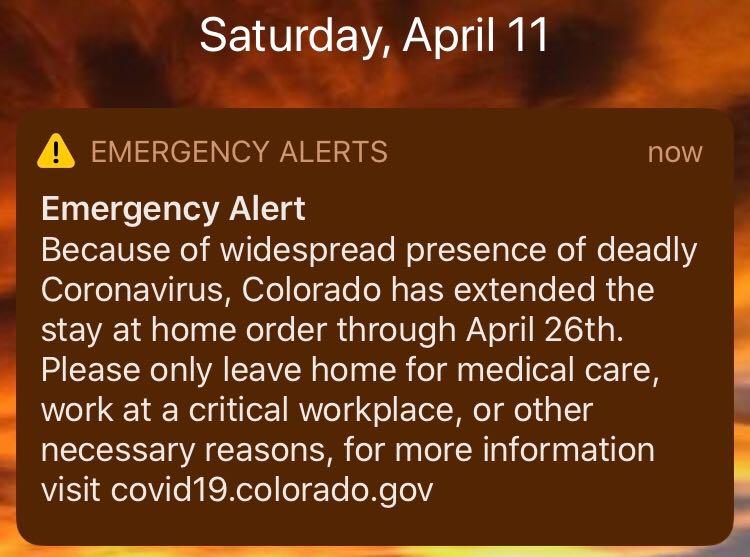
It seems like an eternity ago, but just this past Monday night, Colorado Gov. Jared Polis announced he'd extend the stay-at-home order through April 26. It was originally set to expire today, which is why your phone just freaked out like that.
Polis said on Monday he hoped the state could lift restrictions sooner than the current federal guidance, which lasts through April 30, and that, "We are not just hoping, but working hard to be able to end as many of these devastating limitations on movement and commerce as quickly as possible."
He added, "The data and the science tells us that staying at home is our best chance, our only chance, to avoid a catastrophic loss of life — the deaths of thousands of our friends, our neighbors, our family members."
— Rachel Estabrook
8:19 a.m. — What we know about the virus' spread
Good morning. I hope you get outside (in a socially-distanced way, of course) to enjoy the last warm day for a while.
Meantime, here's what we know going into the weekend:
Two hundred fifty people have now died related to COVID-19 in Colorado. Another 1,312 people have been hospitalized with known symptoms of the virus, though we don't know how many of those have since recovered. And we learned of five more outbreaks at residential and non-hospital health care facilities, bringing the total across Colorado to 59.
CPR News revealed late yesterday evening that one of those facilities has had 19 people die related to the new coronavirus; 14 are confirmed and five await final test results or other confirmation. That facility, like many others that have outbreaks right now, have recently been flagged by the state public health department for infection control issues.
Wondering when this whole thing might end? Here are some numbers to watch — and how to make sense of these daily changes in the data.
— Rachel Estabrook
